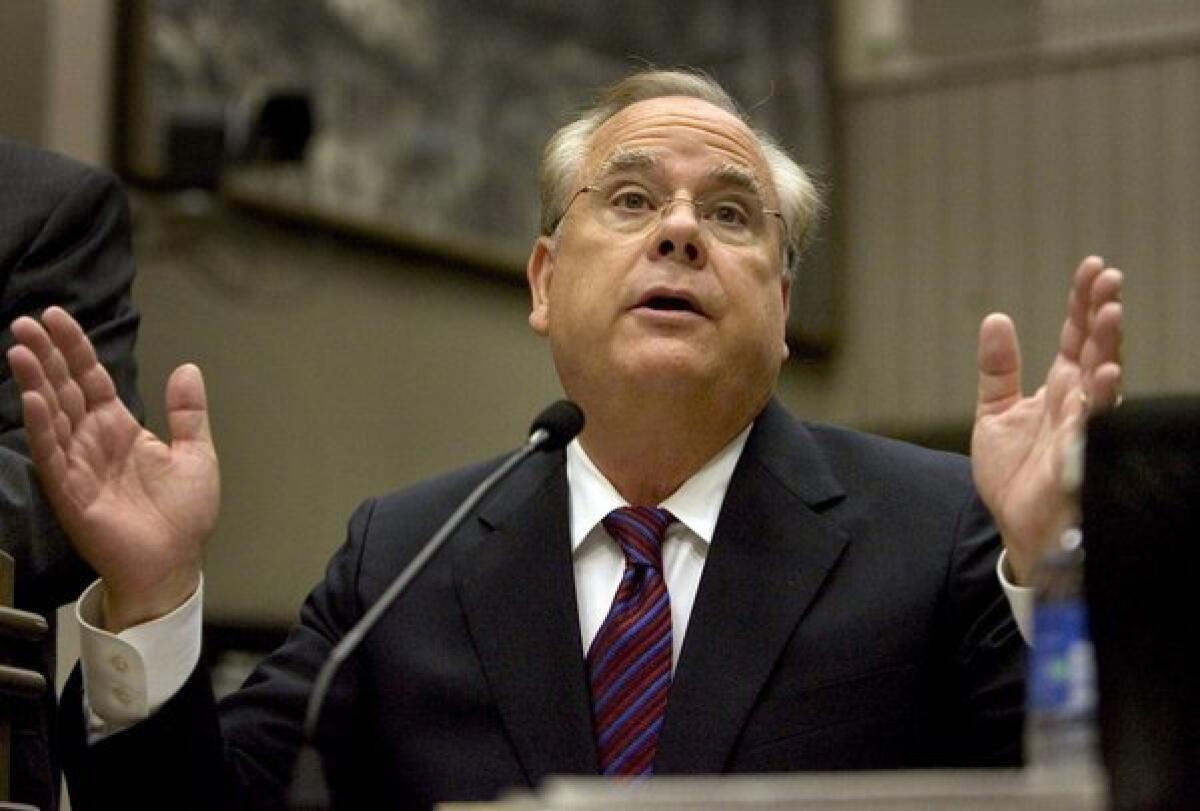Gov. Brown signs law limiting risky capital appreciation school bonds

- Share via
California Gov. Jerry Brown on Wednesday signed legislation cracking down on a risky method of financing that hundreds of school districts and community colleges in the state have relied on to pay for new construction.
The measure, authored by Democratic state Sen. Ben Hueso of San Diego and Assemblywoman Joan Buchanan of Alamo, will rein in the use of long-term capital appreciation bonds that can carry debt payments many times the amount borrowed.
Fiscal watchdogs, including county treasurers and California Treasurer Bill Lockyer, have warned repeatedly that the bonds -- which let districts postpone the start of payments for decades -- are reminiscent of the lending and Wall Street excesses that contributed to the Great Recession.
The bill “ensures that school districts no longer can heap outrageous debt burdens on the backs of future generations of taxpayers,” Lockyer said. “The reforms are reasonable and balanced, and they won’t harm districts’ ability to meet their school construction needs.”
The legislation reduces the maximum maturity of capital appreciation bonds, so-called CABs, from 40 years to 25 years and limits a school district’s repayment ratio to no more than $4 in interest and principal for every $1 borrowed. It further requires that bond deals give school districts an early repayment option for CABs with maturities longer than 10 years.
Schools also must provide their boards with public reports that detail planned borrowings that involve capital appreciation notes. The analysis would include the cost of the bond issue, a comparison with conventional forms of financing, the reason for using capital appreciation bonds and disclosures by brokerages hired as underwriters.
Supporters of the bill say it should eliminate the heavy indebtedness that can come from issuing capital appreciation bonds with maturities of 25 to 40 years. The long-term notes can result in debt payments as much as 20 times the amount borrowed.
According to a Times analysis, at least 200 school and community college districts in California have borrowed billions of dollars using the long-term bonds since 2007. Nearly 70% of the money borrowed involves extended 30- to 40-year notes, which will cost taxpayers $13.1 billion, or about 6.6 times the amount borrowed on average.
Although CABs can be more costly than conventional notes, local educators have said such devices have been an effective way to finance capital improvement projects during the tough economy while still complying with statutory limits on property taxes.
Officials for the Coalition for Adequate School Housing and the California Assn. of School Business Officials had urged the Legislature to not take a cookie-cutter approach to school finance or restrict districts’ flexibility to pay for construction.
ALSO:
UCLA environmental studies receives $15-million donation
Boys held in sexual assault case at Riverside County high school
‘Breaking Bad’ withdrawal? Glendale library has a book list for you
Twitter: @LADeadline16
More to Read
Sign up for Essential California
The most important California stories and recommendations in your inbox every morning.
You may occasionally receive promotional content from the Los Angeles Times.














